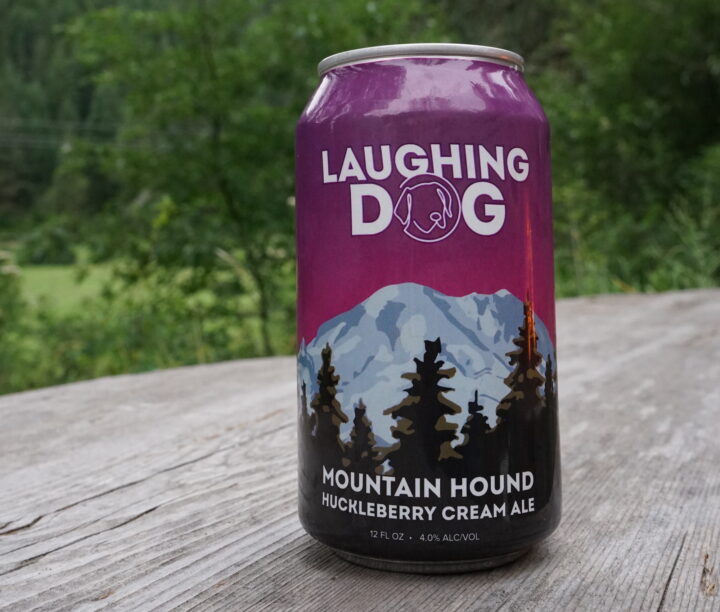
Ponderay, Idaho’s Laughing Dog Brewing is a rarity in the craft beer world. “We’re one of the few northwest breweries whose flagship beer isn’t an IPA,” says sales manager Cory Treman. Rather, it’s the brewery’s Mountain Hound Huckleberry Cream ale—comprising Laughing Dog Loyal Companion cream ale and fresh, locally-sourced huckleberries—that has emerged as its top seller, setting the company apart from competitors. “Consumer response has been gigantic,” says Treman. “Huckleberries are readily available in northern Idaho, so locals are familiar with the fruit, but tourists also want to sample it.” In addition to Idaho, Mountain Hound is distributed year-round in Montana and Wyoming, and is available in both Yellowstone and Glacier National Parks, which has helped expand consumer awareness of the brew, Treman says.
Other craft brewers are also marketing beers that feature locally grown ingredients. Like Mountain Hound, Black Walnut Dark Wheat ale from Piney River Brewing in Bucyrus, Missouri, has emerged as the brewery’s top seller. “Black walnuts grow wild here in the Ozarks and are hand harvested every fall,” says brewery co-owner Joleen Senter Durham. “Anyone who’s grown up in the area remembers gathering the nuts, bringing them to hulling stations, and getting paid by the pound. When consumers see black walnut on the label, it immediately brings them back to their youth.” Black Walnut Dark Wheat is produced year-round and is distributed in Missouri and Arkansas.

North Carolina’s Fullsteam Brewery, meanwhile, has taken the incorporation of local ingredients to heart. According to CEO Sean Wilson, every beer Fullsteam produces contains at least one locally sourced ingredient, whether it’s barley, wheat, sweet potatoes, persimmons, or pawpaws (fruit from nearby Asimina triloba trees). Fullsteam brews that contain 100% North Carolina malt are labeled with the brewery’s “Plow to Pint” certification. “Utilizing locally sourced ingredients has been part of our DNA since our founding 13 years ago,” Wilson says, pointing to the brewery’s first beer, Southern Basil Farmhouse ale, which incorporates basil grown on nearby farms.
The inclusion of area ingredients in craft beers is a good way to showcase local pride, the brewers say. “Craft breweries are all about the place where their beer is produced,” explains Senter Durham. “It’s fun to have a beer that represents your own area.” The sourcing of local ingredients also demonstrates support of other small businesses. “We love to support local farmers, and keep the money in the community,” says Treman.
Still, the use of native ingredients doesn’t appeal to all. Wilson concedes that while many breweries are committed to supporting other local businesses, “it doesn’t always land that way with consumers.” Senter Durham adds that sourcing local ingredients can sometimes result in supply constraints. “With any harvested ingredient, it all depends on the weather,” she says. “With black walnuts, some years are better than others.”
Retailers commend the uniqueness that beers produced with local ingredients provide a brand. Anne Baker, the owner of Civil Kitchen restaurant in Springfield, Missouri, says that when customers ask for a local beer, “we steer them to Black Walnut, as it tends to be pleasantly different from other local offerings.”
At Pilgrim Market grocery store in Coeur d’Alene, Idaho, beer and wine manager Sara Lane says beers containing huckleberries sell well. “They’re particularly popular with folks from out of state,” she notes. The beers—most of which are only available during the summer—are either merchandised in a seasonal beer or Idaho beer display. In addition to Mountain Hound, Pilgrim Market offers huckleberry brews from the likes of Bitter Root, Wallace, Mickduff, and Paradise Creek breweries, all priced at $2-$3 a 12-ounce bottle or can.
While only a niche in the overall beer market, brews that feature local ingredients stand out in a crowded category. “Using what you have around you is a way to embrace your community heritage and local products,” Baker says. “It can also differentiate your product regionally and nationally.”